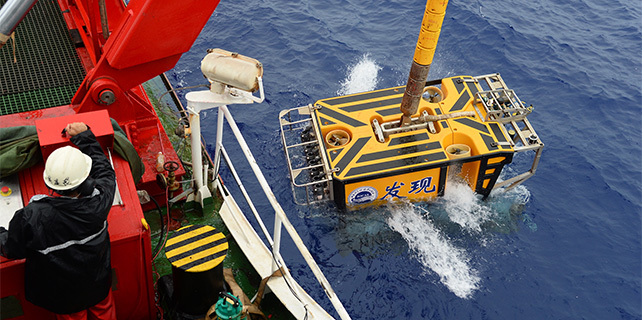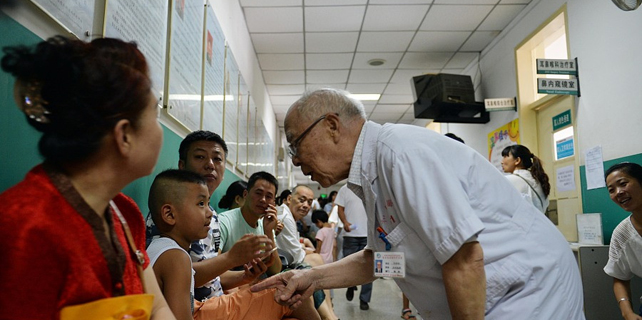Woman has body frozen for future
Couple hoped technology might someday be used to restore life
The first cryonics procedure in China for an entire body has taken place in Shandong province, the Yinfeng Life Science Foundation said on Monday.
The procedure is meant to preserve the body at a very low temperature shortly after death in the hope of bringing the deceased back to life if future medical technologies make it possible.
The procedure began on May 8, less than five minutes after Zhan Wenlian's heart stopped beating and doctors declared her clinically dead.
Aaron Drake of the Alcor Life Extension Foundation, based in the United States, and medical experts from Shandong University's Qilu Hospital in Jinan, immediately put Zhan on a life support system, including nutrition and cardiopulmonary support, Kong Fei, a foundation council member, said on Monday.
The foundation was created by Yinfeng Biological Group, a private company based in Jinan that specializes in the research and development of the human cell and organ storage technologies.
Zhan's body was sent by ambulance from Qilu Hospital to a lab at an institute affiliated with the company. Her body was injected with chemicals designed to protect her cells from being damaged during the freezing process. The body was then placed in a container whose inside temperature was reduced to below-190 C.
The process took more than two days to complete.
Since May 10, Zhan's body has been stored in a 2,000-liter container at the institute. Liquid nitrogen keeps the body temperature between -192 C and -195 C, Kong said.
Zhan, who was 49 and worked at a State-owned bank in Jinan, had lung cancer. Gui Junmin, her husband, first approached Yinfeng in February after an introduction from his wife's doctor, and he decided to do the procedure after getting his wife's consent, Kong said.
"Gui said he would like to try, although he knew it was not possible to revive his wife in the near future," he said. "I think his love for his wife was the biggest factor in his making the decision."
The foundation will bear all the expense of the procedure and storage, Kong said. The cost would be very high, he said, declining to say exactly how much.
"We are dedicated to promoting the development of cryonics technology," he said. "The body is expected to be stored for at least several decades, and we may evaluate the body's condition after a certain period of time, and revive her if possible in the future.
"It depends on technological development in the field. I do not see any possibility for revival in the immediate future," he said.
Chen Jingyu, vice-president of Wuxi People's Hospital in Jiangsu province and a prominent expert in lung transplants, said that once a person's heart has stopped beating and they are not breathing, they are usually considered brain dead, and it is meaningless to preserve the body.
"It is not possible to bring a person who is considered brain dead back to life," he said.
Kong said the foundation will continue to accept requests for the procedure, but it will not keep too many bodies because of the high cost.
"We are also planning to build an organ bank, probably the largest one in Asia, for better storage of donated organs," he said.
The first person in China to receive cryotherapy was Du Hong, a writer from Chongqing, who had her head preserved at Alcor in 2015, according to Science and Technology Daily.
More than 100 people have been preserved since the first case in 1967, according to the foundation.
The object of cryonics is to prevent death by preserving sufficient cell structure and chemistry so that recovery (including recovery of memory and personality) remains possible by foreseeable technology, it said.















